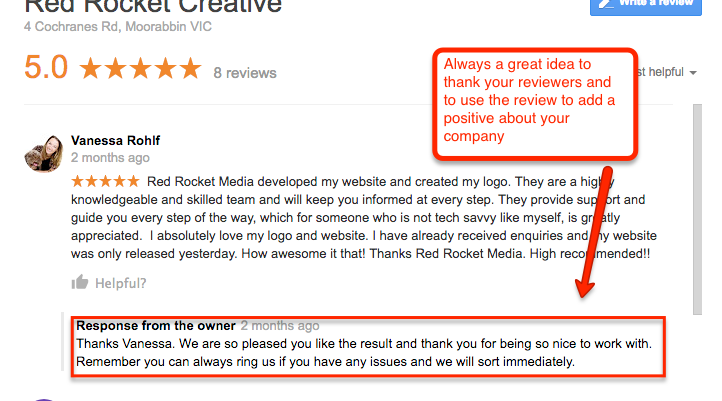Noise
ONLINE MARKETING
Reputation Management
 ARE YOU LISTENING TO WHAT PEOPLE ARE SAYING ABOUT YOU?
ARE YOU LISTENING TO WHAT PEOPLE ARE SAYING ABOUT YOU?
Only a few short years ago you could have a really bad experience with a restaurant, hotel stay, or any service based business for that matter and the best you could do to extract some sort of revenge was to tell all your friends about it, and lets face it, you need to actually see them in person to do it. This sort of negative feedback, while not great, for any business, was certainly not going to overly impact your business that much.
Fast forward to 2017 and it seems every business is being reviewed these days. I am part of a local Bayside Community Hub and people are always looking for recommendations for some sort of industry, from motor mechanics to lawyers to cleaners to just about anything. Often, along with the recommendations, many users love to take the opportunity to post negative experiences about businesses they have had a bad experience with and unless you are monitoring social media, is it extremely difficult to keep on top of it all.
How do you monitor what people are saying about you?
There are lots of free apps on the market that will do this for you, I have put together a list of the top three in my opinion’ for you to look at. Personally we use Hootsuite here at Red Rocket Creative which we find easy to use and allows us to schedule posts on multiple social media platforms at the one time as well as monitoring our online reputation (If you are using more than three social platforms you will need to upgrade to paid version)
My top three apps for social media monitoring are
How do I handle reviews ( good or bad)?
Firstly, most reviews should be responded to, if you get a great review, thank the person using their name and try to value add to the review.

ie. ” In this example the client left a great review and in thanking the reviewer we offered for her to call us at any time if she found any issues, and that we would respond immediately (which we would of course, never promise what you can’t deliver).
Your customers will love the fact you acknowledged the time they took to review your company and your response will further add professional credibility to your organisation.
Below is an extract from a great article I recently read on managing negative reviews in the QLD Government business website, which you can read below, or if you prefer, here is link
A step-by-step guide to managing negative online reviews
Numerous surveys have found that a high proportion of customers regard online reviews as credible.
Many review sites point out that very negative (e.g. 1 or 2 star) reviews make up a relatively small proportion of all reviews posted. Still, negative reviews can have a big impact, so it’s important to manage them effectively.
Stay calm, cool down
Many business owners feel upset or angry when they read a negative review. It’s important not to respond to a review until you’ve cooled down.
Decide if it’s worth responding
Some negative reviews aren’t worth thinking about. If they’re posted by somebody whose language and opinions are clearly irrational, or who’s a ‘frequent complainer’, you may be better off ignoring them. Likewise, if a review is on somebody’s obscure personal blog, and it’s clearly unfair, you may decide not to respond.
On the other hand, you should respond to legitimate concerns, negative reviews by genuine customers, concerns raised by high-profile customers (e.g. those who post reviews frequently), or negative reviews on popular sites.
Read and follow the site rules for businesses
Most sites prohibit swearing, personal attacks and breaches of privacy. But there may also be some rules for responses that aren’t so obvious (e.g. many sites prohibit advertising, ALL CAPS and links in responses). Make sure to read the site rules that apply to you. Each site also has rules for reviewers, and you should read these to help decide if a negative review breaks their rules.
Ask for false or inappropriate reviews to be removed
If you believe that a review is false or malicious (e.g. has been posted by a competitor), or breaks the site rules (e.g. contains profanity, personal attacks or private information), contact the site and ask for it to be removed. However, be aware that the site may not agree with your assessment, or may be slow to remove a review even if they do agree. Therefore, you may still like to implement some of the other steps below.
Research the incident
If necessary, speak to your staff to get their side of the story, and communicate privately with the reviewer to find out more details. If you’ve joined a review site, you should be able to message reviewers privately. If you haven’t joined, you can post a public message asking the reviewer to contact you offline (e.g. by phone or email) to discuss their concern. If the negative comment is on a blog, Facebook page or Twitter, you may have to respond publicly and ask the writer to contact you privately.
Understand the customer’s point of view
Even if you don’t agree with a negative review, try to understand why the customer has posted it and what they are feeling.
For example, if somebody has tried to call your hairdressing salon all week but your phones have been malfunctioning, and then there’s a small mix-up with their booking time, they’re likely to be far more negative about the mix-up. You need to understand the customer’s feelings, not just the facts, if you want a successful outcome.
Respond privately to resolve the issue
Many businesses prefer to respond privately to negative reviews in the first instance. If you have joined a review site, your business ‘dashboard’ will allow you to send a private response. Send a short message to the reviewer in which you:
- introduce yourself
- thank them for using your business
- thank them for their feedback
- apologise for the fact that their experience didn’t satisfy them
- outline what you understand to be their concerns.
It’s possible to do this without admitting that your business has done anything wrong, if you feel that’s the case.
Then ask for more details if need be, or make an offer to resolve the customer’s concern. Sometimes you just need to improve a procedure (e.g. ‘I’ve asked all my electricians to phone ahead from now on if they’re going to be late’). In other situations, you might offer some kind of compensation (e.g. ‘We’d love to offer you and your wife a free cocktail next time you visit to make up for the mistake on the bill’). Most marketing experts recommend that you invite customers to return to your business. However, if a customer has raised very serious concerns, you will need to think carefully about how they might respond to such an invitation.
Respond publicly
Once you’ve communicated privately with the customer, it’s generally a good idea to post a public message acknowledging the concern and outlining what you’ve done to resolve it. This will actually boost your reputation with many readers, who can see that you are responsive to feedback. If it’s taking a long time for the complainant to respond to you, you might still like to post a public comment so that other readers know you’ve tried to take positive action.
Be polite and constructive at all times
A negative review is not good for your business, but a rude, aggressive or flippant response from you will probably damage your reputation even more. When responding publicly, be polite and professional at all times. Deal with the issue that’s been raised, and never resort to personal insults or comments. The same applies to private responses. Remember, a customer can easily take your private response and post it online as well.





